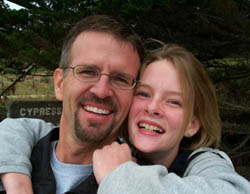Today the House Judiciary Committee approved the Child Interstate Abortion Notification Act by a vote of 20 to 13. The measure is needed to ensure abortion facilities don’t violate the parental notification laws of a girl’s home state.
Lawmakers support the bill, which would make it a federal crime to transport a minor across a state line in circumvention of a state law requiring parental involvement in the minor’s abortion. The legislation is needed as sexual abusers, family members and even staff at abortion centers routinely take teenage girls across state lines for secret abortions without their parents knowledge or permission. It also requires parental notice for abortions on minors who are from a state other than where the abortion will take place.
The following video shows Rep. Lamar Smith, Chairman of the House Judiciary Committee, giving his opening statement on the bill.
Congresswoman Ileana Ros-Lehtinen, a Florida Republican, has introduced CIANA in each Congress since 2005 and the bill currently has 151 cosponsors. She says CIANA would make it a federal crime to transport a minor across state lines for the purposes of having an abortion and circumventing the parental consent/notification laws of the minor’s home state.
 “CIANA is a critical piece of legislation that ensures that parental rights are upheld, while promoting the inherent dignity of the unborn. The majority of the American people and more than 30 state legislatures have made it clear that parents have the right to know whether their child is trying to undergo an abortion,” she said.
“CIANA is a critical piece of legislation that ensures that parental rights are upheld, while promoting the inherent dignity of the unborn. The majority of the American people and more than 30 state legislatures have made it clear that parents have the right to know whether their child is trying to undergo an abortion,” she said.
Ros-Lehtinen continued, “At such a vulnerable time in a young girl’s life, she deserves to have the guidance and love of her family. Minors should not be ferried across state lines by those who would wish to deny parents of their right to be involved in their children’s lives. I thank Subcommittee Chairman Trent Franks for holding this hearing. I hope that the House will give this legislation the thoughtful consideration it deserves.”
During a hearing on the measure, Professor Teresa Collett a law professor at the University of St. Thomas School of Law testified that the law was constitutionally sound. During her testimony, she rejected speculation from pro-abortion Democrats on the panel about numerous what-if situations and whether other people could be prosecuted under the law other than those who purposefully take minor girls to another state for an abortion.
Dr. Michael New a political science professor at the University of Michigan – Dearborn told lawmakers that studies show parental involvement laws not only reduce the number of teen abortions but also help teens avoid sexually transmitted diseases.
He told members of Congress that he knows of no studies validating the pro-abortion claim that teens will be subject to abuse or harm by their parents because of having to tell them of their pregnancy and potential abortion.
The Very Reverend Dr. Katherine Hancock Ragsdale, the president of Episcopal Divinity School, testified against the measure but often struggled to come up with answers to lawmakers challenging questions about her aversions to the bill.
If enacted, CIANA would serve two goals. First, it would prohibit the act of knowingly taking a minor across state lines with the intent of obtaining an abortion if this action evades the parental involvement law in her home state. And second, it would require abortion providers to notify a parent of an out-of-state minor before performing an abortion. With disparate state laws regarding parental involvement all across the country, this bill would ensure those state laws are enforced regardless of where an abortion may be performed.
CIANA allows for punishment, in the form of fines or imprisonment, of physicians who knowingly perform an abortion on a minor who has traveled across state lines and any individual who transported the minor across state lines. This legislation does not apply in the cases of a medical emergency, abuse or neglect.







